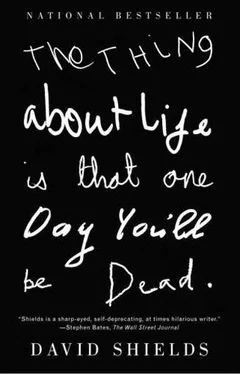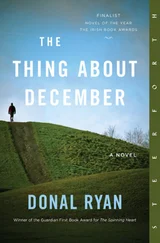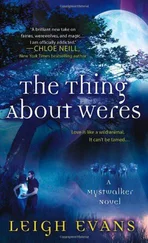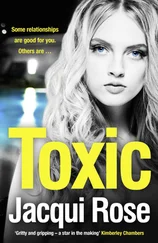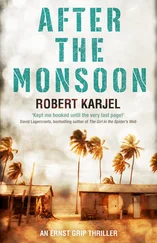On channel 87, Hair Color for Men got the gray out.
On channel 89, with long life you will satisfy Him and show Him your salvation.
On channel 90, you could have the makeover of a lifetime.
On channel 95, Hollywood celebrities paid $24,000 for Mari Winsor’s body-sculpting program.
On channel 99, a horror movie ended with a white curtain blowing in the breeze against a black night.
On channels 2 through 99, we sought but couldn’t find a cure for the fact that one day we would die.
Life Is That Which Gives Meaning to Life
André Gide wrote in his journal, “Every day and all day long, I ask myself this question—or rather this question asks itself of me: shall I find it hard to die? I do not think that death is particularly hard for those who most love life. On the contrary.”
Elizabeth Barrett Browning said, “Knowledge by suffering entereth, / And life is perfected by death.”
In the journal my mother kept the last year of her life, she wrote, “Of one thing I’m sure: I don’t want to live if I can’t function, make decisions for myself, and take care of myself. I hope that if I reach that point I’ll have the courage to take my life. I feel very strongly that life is a very precious gift and that one should always choose life, but to me life is being able to function. Maybe I’ll be able to express this better and more clearly as time goes on.” My father frequently alludes to this journal entry and shakes his head in wonder and bafflement and, in a way, pity.
In Lament for the Makers, William Dunbar wrote, “Timor mortis conturbat me”: the fear of death distresses me.
As a 9-year-old, I would awake, shivering, and spend the entire night sitting cross-legged on the landing of the stairs to my basement bedroom, unable to fathom that one day I’d cease to be. I remember being mesmerized by a neighbor’s tattoo of a death’s head, underneath which were the words, “As I am, you shall someday be.”
Simone de Beauvoir wrote, “From the time I knew I was mortal, I found the idea of death terrifying. Even when the world was at peace and my happiness seemed secure, my 15-year-old self would often turn at the thought of that utter non-being— my utter non-being—that would descend on its appointed day, for ever and ever. This annihilation filled me with such horror that I could not conceive the possibility of facing it coolly. What people called ‘courage’ I could only regard as blind foolishness.”
Rousseau said, “He who pretends to look on death without fear lies.”
The narrator of Donald Barthelme’s story “The School,” an elementary-school teacher, says:
One day, we had a discussion in class. They asked me, where did they go? The trees, the salamander, the tropical fish, Edgar, the poppas and mommas, Matthew and Tony, where did they go? And I said, I don’t know, I don’t know. And they said, who knows? and I said, nobody knows. And they said, is death that which gives meaning to life? And I said, no, life is that which gives meaning to life. Then they said, but isn’t death, considered as a fundamental datum, the means by which the taken-for-granted mundanity of the everyday may be transcended in the direction of—
I said, yes, maybe.
They said, we don’t like it.
My father has asked me to research the affordability and plausibility of “cryonic suspension.” He’s willing to die, but he doesn’t want to be dead forever.
Hoop dream (ix):
My grandfather, my father’s father, Samuel, was a business agent for the International Ladies Garment Workers Union of the CIO, in Westchester. He’d awake at 5:30, have a cup of tea and piece of toast, glance at the newspaper, and leave for the subway at 6:00. He handled workers’ grievances and contract negotiations with manufacturers. He’d eat his dinner hurriedly, then be off to his second job—investigator for the neighborhood Eastern Star Credit Union, which he had helped found. At first, the credit union made small loans of $50 and $100 to its members, almost all of whom were recently arrived Russian and Polish immigrants (as was my grandfather, who fled to England in the 1880s rather than face induction into the notoriously anti-Semitic Russian army, which often exiled Jews to Siberia). Several years later, after it was credentialed by the New York State Banking Commission, it was lending $10,000. My grandfather’s signature would guarantee the loan if the original borrower failed to make the payment; he’d walk for miles to some homes, and my father would sometimes accompany him. Samuel would return at midnight, sleep five hours, and be up the next morning to take the long subway ride to the factory. He also purchased shirts at wholesale and sold them to his friends for a small profit. As a teenager, my father would help my grandfather lug the boxes of shirts through the streets of their neighborhood. When he was older and had a car, my father would drive him around Brooklyn to collect signatures on loans. My father says, “I never knew where he found the energy to keep up the pace he did.” My father says this.
Sam spent Sunday mornings reading the three Yiddish newspapers: Forward, Der Tog (The Day), and Freiheit (Freedom). A Socialist, he introduced my father to notions of “dialectical materialism,” “left-wing infantilism,” “alienation of the proletariat,” and “means of production.” He would say, “Milteleh, don’t ever forget this: under Communism, man exploits man, while under capitalism, the reverse is true. No matter what fancy words presidents or commissars or kings use, it’s money—economics, the cash nexus—that rules the world. Money is the world.” For emphasis he would repeat this last formulation in Yiddish: “Geld ist der veldt.”
My grandfather gave my father Ten Days That Shook the World, John Reed’s account of the 1917 Russian Revolution, which my father read over and over. In high school history classes, my father would sometimes challenge what the teacher said or the textbooks omitted. When questioned where he got a particular fact or point of view, he would say, as instructed, “My father, who knows whereof he speaks.”
“You can tell, Dave, can’t you, how his life touched me?” my father likes to say about his father. “There was the sense of doing things for his fellow men; there was the kindly, mediating approach. Ess vett soch oy spressen, he liked to say. It will press itself out. It will take care of itself. He couldn’t cope with problems. He let them drift, grow, fester, or fly away. Recognize some of your dad’s penchants and peccadilloes in that?”
The night before my grandfather’s funeral, my father and I wandered around his apartment. I was 7 and had never met him. My grandfather’s skinny belts and wide ties hung from hooks in a closet. Badly warped classical record albums were stacked against a wall. His wallet and a Nikon sat atop the stripped bed. His favorite coffee mug was carefully wrapped in plastic, as was, of all things, a brand-new basketball: undelivered present for me, my father figured, and then he fell to pieces.
In 1600 B.C., the Egyptian papyrus Book for Transformation of an Old Man into a Youth of Twenty recommended a potion involving herbs and animal parts. In ancient Greece, old men were advised to lie down with beautiful virgins. When my father visited me at college, he virtually ignored my girlfriend and focused on her roommate, whom he kept calling “a very attractive young woman.” Castration—believed to extend the life span a few years—was popular in the Middle Ages. Eunuchs do live longer than uncastrated men. A sterilized dog or cat, male or female, will live, on average, two years longer than unsterilized dogs and cats. In the early sixteenth century, Ponce de León, age 55, searched for the Fountain of Youth because he was unable to satisfy his much younger wife. Later in the sixteenth century, Francis Bacon thought that if the body’s repair processes—that is, our capacity for tissue regeneration and healing and our ability to recover from disease—were perfected, aging could be overcome.
Читать дальше
